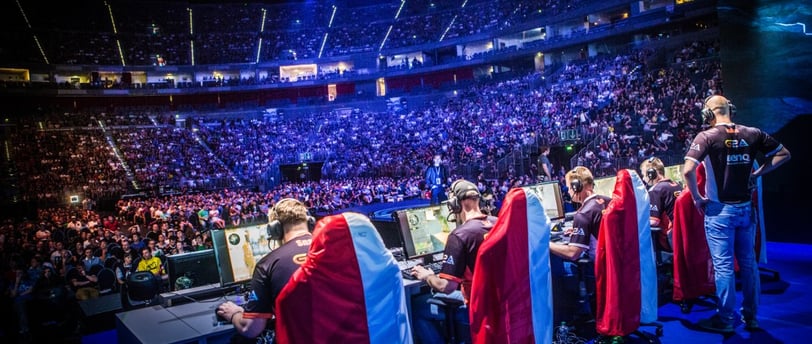The Impact of Esports on the Gaming Industry
ARTICLES
Verifi
6/12/20243 min read


Esports have grown from a niche pastime to a worldwide phenomenon that has drastically changed the game business. In addition to giving players a new platform to show off their abilities, this competitive platform has created new options for sponsors, media outlets, and developers. One of the biggest developments in the gaming and entertainment industries in the last ten years has been the explosive growth of esports.
The Rise of Esports: From Arcades to Arenas
Esports have their roots in the early years of local area network (LAN) parties and arcade games. The popularity of competitive gaming began to grow in the 1990s with the release of multiplayer titles like "StarCraft" and "Quake." But the true explosion occurred in the 2000s with games like "Counter-Strike" and "Warcraft III," which established the foundation for contemporary esports.
Esports were transformed with the advent of high-speed internet and streaming services like Twitch, which allowed spectators to watch from anywhere in the globe and allowed competitors to compete. Because of its accessibility, competitive gaming has grown from a small grassroots movement to a major international event.
The Big Leagues: Major Titles and Tournaments
There are many different games available in esports these days, and each has a devoted fan base and a professional scene. League of Legends, Dota 2, Counter-Strike: Global Offensive, Fortnite, and Overwatch are some of the notable titles. Multimillion dollar prize pools are awarded in these games' yearly events, like "The International" for Dota 2 and the "League of Legends World Championship."
These competitions frequently take place in huge arenas and attract audiences similar to those of regular sporting events. For example, more than 100 million people watched the 2019 "League of Legends World Championship" finals globally, which is equivalent to the Super Bowl's viewership.
The Booming Industry's Economic Impact
The influence of esports on the economy is astounding. By 2024, it is anticipated that the business would bring in over $1.5 billion thanks to ticket sales, sponsorships, media rights, advertising, and retail sales. Notable companies like Nike, Intel, and Coca-Cola have made significant investments in esports because they see the opportunity to connect with a younger, tech-savvy audience.
Additionally, esports have produced new job prospects. A growing number of people are pursuing careers as professional athletes, coaches, commentators, streamers, and content producers. Pro players can make good livings via sponsorships, broadcasting fees, and tournament winnings.
The Media's Function: From Specialty to Mainstream
One major factor contributing to the expansion of esports has been media coverage. Fans may follow their favorite players and watch live matches on platforms like YouTube Gaming and Twitch. Major esports tournaments are now being covered by traditional media sites like ESPN and BBC, which has further legitimized the industry.
Furthermore, esports have gained widespread recognition thanks to documentaries and television shows on sites like Netflix, such "High Score" and "The Playbook," which showcase the commitment and expertise of professional gamers.
Challenges and Opportunities
Esports is facing a number of obstacles despite its quick expansion. Because of the demanding training and tournament schedules, player burnout is a serious problem. The industry also has to address issues related to fair play, including as match-fixing and cheating.
Nonetheless, it appears that esports have a bright future. Competitive gaming may take on new dimensions as a result of the ongoing advancements in technology, including virtual reality and augmented reality. Furthermore, the growing recognition of gaming as a respectable professional path is probably going to draw further talent and capital into the industry.
Conclusion
Esports has completely changed the gaming landscape by making competitive gaming a popular form of entertainment. The growth of esports illustrates how gaming has the power to bring people together around the world and mirrors larger trends in digital entertainment and social interaction. Esports is positioned to become an increasingly more significant component of the entertainment scene as the business develops, offering fans and players alike fascinating new innovations.
